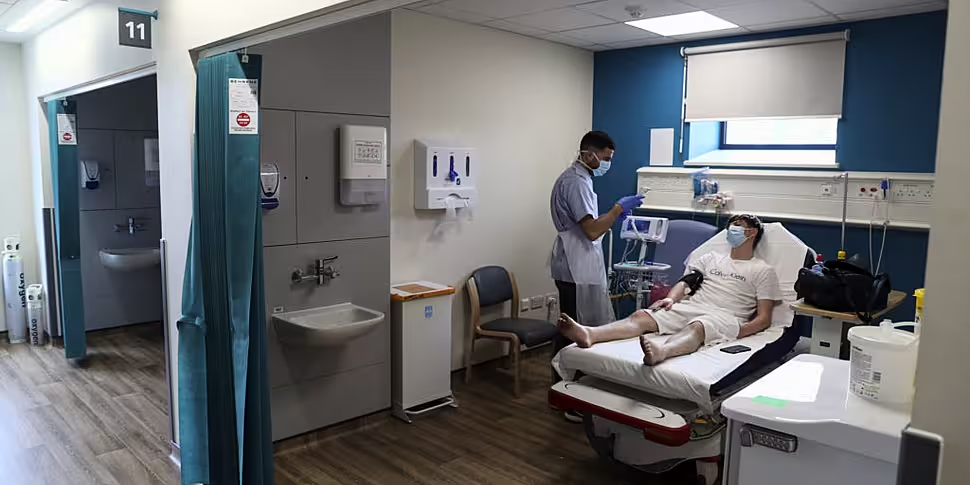A young Irishman who contracted COVID-19 in the early days of the outbreak has opened up about his ongoing battle with the virus.
33-year-old Dean Feeney was “the picture of health” before contracting the virus while working in Vancouver back in March.
On The Pat Kenny Show this morning, he warned that, while COVID is often viewed as a two-week illness for the young and healthy, there is a growing cohort of people who have suffered severe long-term effects.
He said he was initially diagnosed with the virus in hospital and was told he wasn’t clinically considered a severe case and that he should go home and rest up.
“I was told it should resolve within 14 to 21 days, something like that, which is the sort of prevailing narrative around it,” he said.
“Unfortunately, it turned out that wasn’t the case and it continued for 14 days, which turned into three weeks, four weeks and then I had to go back to hospital a second and a third time because other symptoms were developing.”
"Terrifying"
Mr Feeney said he developed a burning sensation which began moving between different organs and bodily systems.
“I would have a burning sensation in my chest one night and it would clear up a little bit in the day and the next night, I would feel the burning in my kidneys and then it moved into the lungs and then into my heart so that was particularly terrifying,” he said.
“It continued like that for about 14 days but then it started to change. The burning stopped but other things started to happen which ranged from pretty severe to just downright strange.
“There were severe heart palpitations, heart arrhythmia where my heart rate would change from; my resting rate would be about 60 beats per minute and it would change randomly to about 120, which is double what it should be.
“Other symptoms were consistent with stroke. I had numbness in one half of my body. Severe episodes of confusion, not knowing what is going on and various other terrifying things.”
"Picture of health"
Mr Feeney said he was very fit before contracting the virus – training for the Toronto half marathon and attending the gym up to four times a week.
He said he was eventually sent to various different specialists who performed a range of different medical tests.
“Everything was coming back all clear and that seems to be what the virus tends to do,” he said.
“It is difficult to pin down. It is shifting, it’s changing; the symptoms keep changing so it is really difficult to identify it clinically thorough all the normal means of testing.”
Sick leave
He said his employer was very understanding throughout the process; however, following a negative test, he decided to move back to Ireland.
He said it can be very difficult for people experiencing long-term effects to explain to their employers what is happening.
“I know a lot of other people; there are some support groups out there, and I am hearing from people whose employers are starting to lose patience with them,” he said.
“Some people are three, four, five months deep and employers are starting to lose patience – which is understandable because the prevailing narrative is that this is a 14-day thing but in some cases that just isn’t true.”
Symptoms
He said there were times when he began to question whether his symptoms might be related to some other illness; however, he has connected with many others experiencing similar things.
“People are describing their symptoms and they are verbatim to mine,” he said. “A lot of people are having the exact same experiences which leads me to believe that this is not just some alternative thing which has developed after the fact.
“This seems to be a common experience among many people and also, in terms of the age bracket for a lot of people having the long form the virus, they tend to be within the 20 to 50 age bracket which again goes against the prevailing wisdom.”
You can listen back here:









